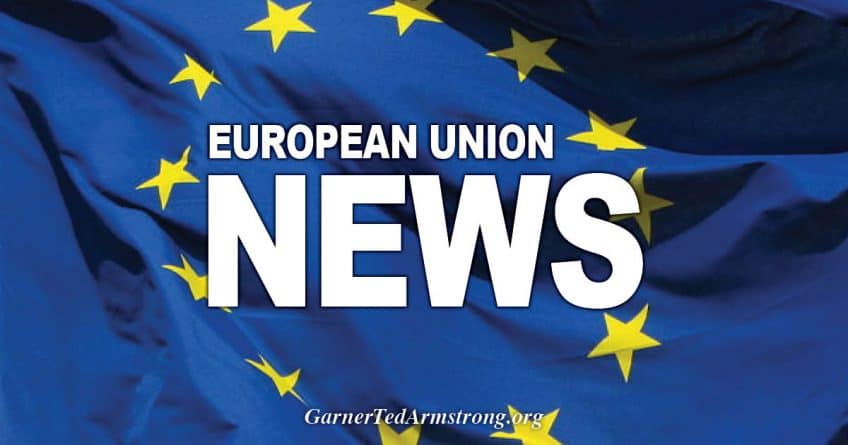
In Denmark, the “Corona Pass”, which inspired the future health pass in France, has been in force since May. © Tom Little, AFP
A compulsory health pass for access to cultural and leisure venues will come into force in France on July 21, certifying that the bearer has either been fully vaccinated or had a recent, negative PCR test. FRANCE 24 takes a look at the European countries that have applied similar policies.
Reserving access to venues and events for those who have been vaccinated or recently tested has sparked controversy in many countries, and France is no exception.
“The health pass will never be a right of access that discriminates among the French. It cannot be made compulsory for access to everyday places,” French President Emmanuel Macron pledged in April during an interview with the regional press.
But barely two months later, under pressure from the soaring infections due to the Covid-19 Delta variant, the president did an about-face.
Starting July 21, the “health pass” (pass sanitaire) will be compulsory for access to leisure and cultural venues with more than 50 people, including cinemas and museums. From the beginning of August, it will be necessary to show your health pass to have coffee or eat lunch at a restaurant – even on an outdoor terrace – or to shop at a mall.
Customers will have to provide either a QR code proving they are fully vaccinated, a negative PCR or antigen test that is less than 48 hours old, or proof that they have recovered from Covid-19 in the last six months. According to the government’s draft bill, restaurants could be fined up to €45,000 and proprietors face up to a year in prison if they fail to comply.
Since Macron’s dramatic announcement on July 12, accusations of a “health dictatorship” have been spreading on social networks. According to the authorities, more than 20,000 people protested across France on Wednesday, Bastille Day, in the name of “freedom” against the president’s announcements.
Denmark led the way in May
With its health pass applying to everyday places both inside and outdoors, France’s rules will be among the most restrictive in Europe – but similar health certificates are already a reality for millions of Europeans.
The vast majority of European countries only require a health pass at major events attended by several hundred people, but several governments have decided to go further by imposing it on everyday activities.
Denmark was the first country in Europe to introduce a “Coronapas“. To go to a restaurant, cinema or hairdresser, customers must show a health pass certifying that they had a negative test less than 72 hours ago, have been fully vaccinated or have recently recovered from Covid-19.
A health pass has also been part of Austrian daily life for almost two months, with rules similar to the Danish Coronapas.
In other EU countries, the health pass does not necessarily apply throughout the country. In Germany, restrictions depend on the incidence rate of Covid-19 cases in a specific region.
This same principle applies in Portugal, where the pass is required in areas more severely affected by Covid-19, and is only mandatory at weekends.
In Luxembourg the authorities are relatively flexible, since establishments are not forced to monitor their “CovidCheck”, the local name for the health pass. If they don’t, they must still respect specific hygeine measures.
Greece is moving towards a much stricter regime. From July 16 until the end of August, people will only be able to go inside establishments if they can prove they have been vaccinated.
Read on: France’s new health pass rules raise questions as many scramble to adapt
Hopes for a boost in vaccinations
In countries that have introduced a health pass for access to bars or restaurants, such as Austria and Denmark, the vaccination rate is at 44.2 percent and 42.9 percent, respectively. This is better than in France (at 39.6 percent) but lower than in Spain, where 48.75 percent of the population has been fully vaccinated.
By making the vaccine almost mandatory, the French government wants to convince the vaccine hesitant to get the jabs and catch up with its European neighbours. According to the Doctolib website, one of the main French sites to register for a vaccine, more than 2 million people have made an appointment to receive a first injection since Macron’s announcement on Monday evening, leading the website to crash.
But this boost could be short-lived, according to Yves Coppieters, professor of public health at the Free University of Brussels (ULB). “Forcing people to get vaccinated so they are able to participate in a whole series of social activities will certainly encourage a number of people. This is what we call passive prevention. In public health, we know that this is very effective in the short term, but it will run out of steam,” says Coppieters. “Those who are still hesitant or who are actively against it will still not get vaccinated. We need to move towards proactive prevention, making the case to the people, and try to convince them with data and clear information.”
Coppieters also believes that countries cannot rely entirely on vaccinations to control the epidemic. “We must continue to make tests accessible. I think it will be a mistake to start charging for them,” as France has done for foreign tourists.
“In addition, ensuring the isolation of patients, following up on contact cases and respecting social distancing is essential. It is by maintaining all these strategies that we will be able to control the epidemic in the coming weeks,” said the Belgian doctor.
Other European countries could extend their health passes to bars and restaurants. This is already being proposed in Italy, where the number of infections is on the rise again. Ireland has also accelerated its health pass programme to reopen pubs and restaurants for indoor drinking and dining on July 19.
This article has been adapted from the original in French.
[Disclaimer]










